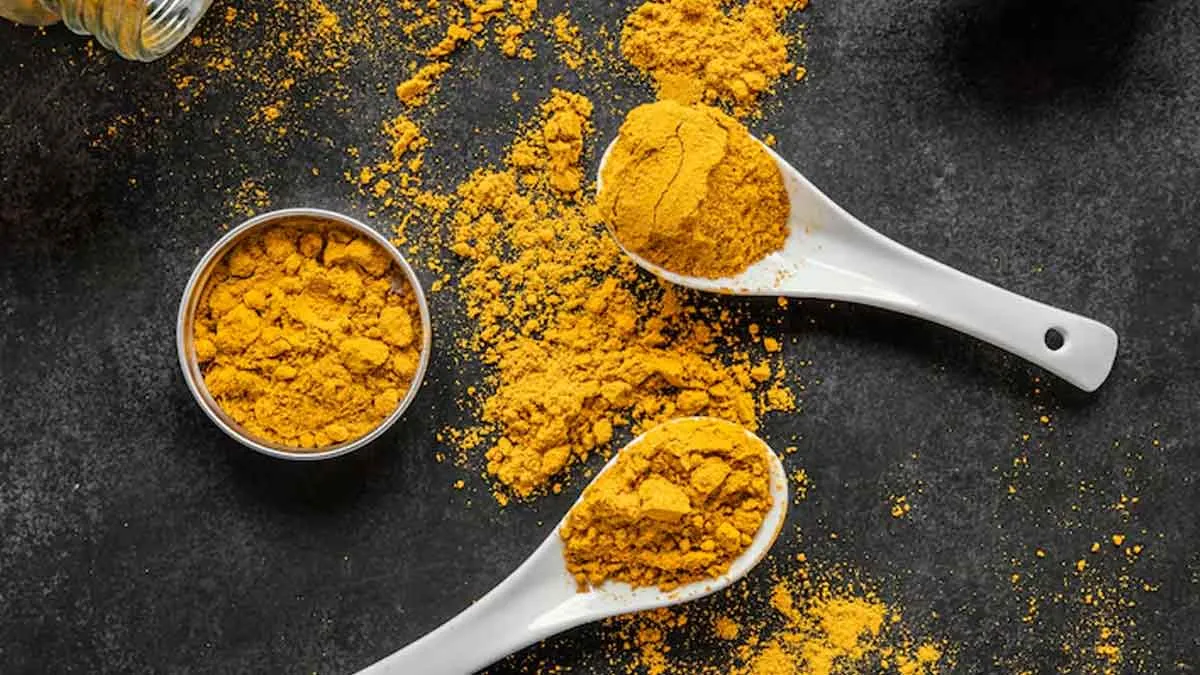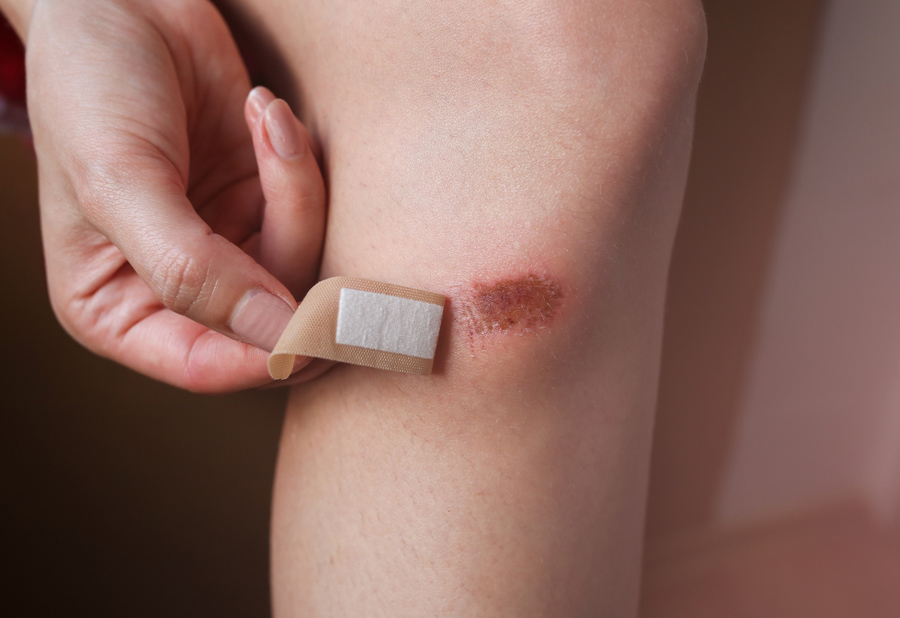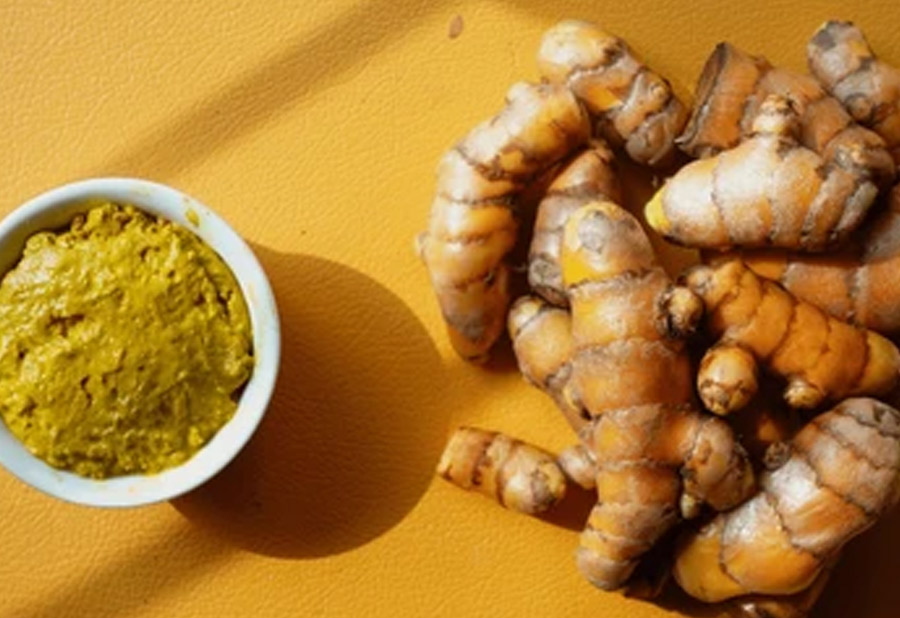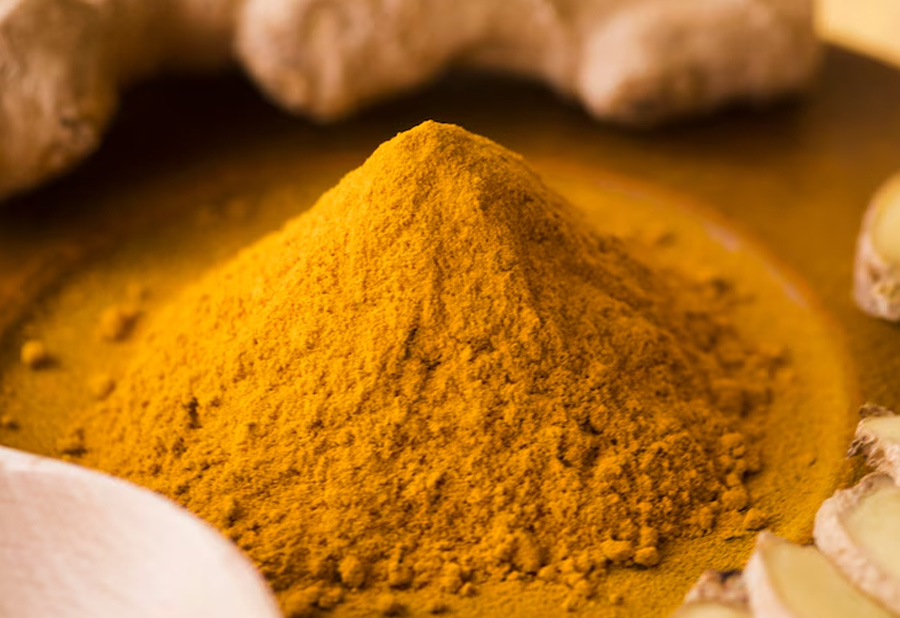
Turmeric, a golden-hued spice derived from the Curcuma longa plant, has been a cornerstone of traditional medicine for centuries. It is particularly renowned for its wound-healing properties, attributed to its primary bioactive compound, curcumin. With its powerful anti-inflammatory, antimicrobial, and antioxidant properties, turmeric can accelerate wound healing, reduce infection risks, and promote tissue regeneration.
Benefits of Turmeric for Wound Healing

Anti-inflammatory and Antioxidant Effects
A study published in the Frontiers of Pharmacology demonstrated that curcumin significantly reduces inflammation by inhibiting pro-inflammatory cytokines. Since excessive inflammation can delay wound healing, curcumin’s ability to modulate the body's immune response helps create a more favourable environment for tissue repair.
Antimicrobial Properties
According to a 2018 study, curcumin possesses strong antimicrobial effects against various bacteria, including Staphylococcus aureus and Pseudomonas aeruginosa, common culprits in wound infections. This makes turmeric an effective natural remedy for preventing bacterial infections in cuts and wounds.
Tissue Regeneration and Collagen Synthesis
A 2014 study in the ScienceDirect highlighted that curcumin enhances fibroblast proliferation and collagen production, both crucial for wound closure and skin regeneration. Improved collagen synthesis leads to faster healing and reduced scarring.
Also read: Benefits Of Turmeric And Ghee Face Mask For Glowing Skin, As Per Expert
How to Use Turmeric for Wound Healing
Turmeric can be applied both topically and consumed orally to support wound healing from the inside out.
1. Topical Application

- Turmeric Paste: Mix one teaspoon of turmeric powder with a few drops of coconut oil or honey (both known for their antibacterial properties) to form a thick paste. Apply this paste directly to the wound and leave it on for 20–30 minutes before rinsing with warm water. Repeat twice daily for best results.
- Turmeric and Aloe Vera Gel: Aloevera is known for its soothing and hydrating effects. Combine fresh aloe vera gel with turmeric powder and apply to wounds to reduce inflammation and promote faster healing.
- Turmeric and Coconut Oil Balm: Coconut oil acts as a carrier, enhancing turmeric’s absorption into the skin. Mix turmeric powder with coconut oil and store in a clean container. Apply as needed.
2. Oral Consumption
- Golden Milk: A popular Ayurvedic remedy, golden milk is made by adding a teaspoon of turmeric powder to warm milk (dairy or plant-based) along with a pinch of black pepper. Black pepper enhances curcumin’s bioavailability, ensuring better absorption.
- Turmeric Tea: Boil a teaspoon of turmeric in water, add honey and lemon for taste, and drink daily to boost immunity and accelerate internal healing.
- Turmeric Capsules: For those who find turmeric's taste too strong, curcumin supplements (with piperine for better absorption) are available in capsule form.
Also read: 7 Health Benefits Of Taking Turmeric And Ginger Together
Precautions and Considerations

- Allergic Reactions: Some individuals may develop skin irritation when applying turmeric topically. Conduct a patch test before full application.
- Staining: Turmeric can leave a yellow stain on the skin, which can be removed with milk or lemon juice.
- Medical Conditions: If you are on blood-thinning medications or have gallbladder disease, consult a doctor before consuming large amounts of turmeric.
Conclusion
Turmeric’s wound-healing potential is backed by science, making it a valuable natural remedy. Its anti-inflammatory, antimicrobial, and tissue-regenerating properties accelerate wound closure, prevent infections, and promote healthier skin recovery. Whether applied topically or consumed orally, turmeric is an effective and accessible solution for minor cuts, burns, and wounds. However, always exercise caution and consult a healthcare provider for severe injuries or underlying medical conditions.
Also watch this video
Read Next
How Does Lemongrass Tea Help Relieve Menstrual Pain, Boost Metabolism, And Manage Blood Pressure
How we keep this article up to date:
We work with experts and keep a close eye on the latest in health and wellness. Whenever there is a new research or helpful information, we update our articles with accurate and useful advice.
Current Version